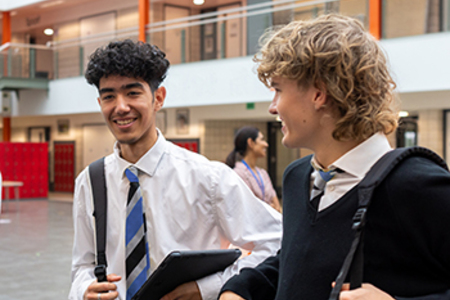[QUOTE-START]
“creative conflict resolution must be regarded as an important educational priority." Sue Bowers and Tom Leimdorfer, 1990
- Quaker Faith & Practice 24.54
[QUOTE-END]
Current training opportunities
As part of our work to build capacity for peer mediation in Britain, we are delivering Train-the-trainer events in key areas. The training is based on best practice from providers we work with, and designed to help both school staff and external providers learn about the training process and content.
How does peer mediation work?
Peer Mediation is conflict resolution for young people by young people. View our videos of peer mediation in action in primary and secondary schools.
It involves:
- children being trained in mediation skills
- children using those skills to help their peers resolve conflict
School communities that have peer mediation schemes report:
- Increased empathy, understanding, pro-social behaviours across the school.
- Increased confidence and academic attainment of peer mediators themselves.
- Staff spending less time dealing with disputes, leaving more time for teaching & learning.
In a primary school, it is typically either 9-11 year old children who are trained.
In a secondary school, various year groups can be trained, depending on the aims of the scheme.
Peer mediation can form an integral part of restorative, relational practice. It can also complement other initiatives such as work on being a UN Rights Respecting School.
The Civil Mediation Council
Quakers in Britain is part of the Civil Mediation Council's Peer Mediation Working Group, bringing together providers of training to share best practice and affirm peer mediators in their work. You can read more their work and your next steps in peer mediation at https://civilmediation.org/peer-mediation
Search for local providers of peer mediation training at https://civilmediation.org/mediator-search
